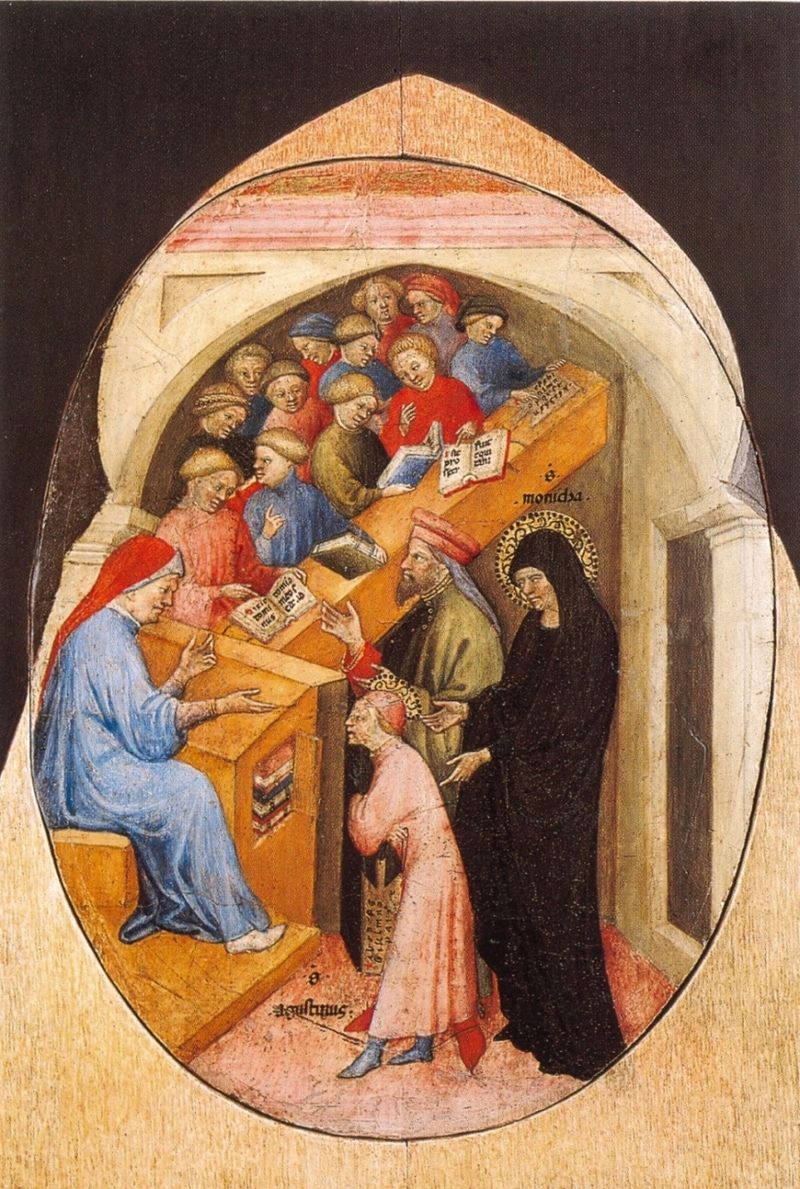
Saint Augustine Taken to School by Saint Monica, by Niccolò di
Pietro, 1413–15
アウグスチヌスの時間概念は TempusAugustiana.html に移転しました
My web-page of
Augustine's Concept of "Time" is now moved to TempusAugustiana.html

Saint Augustine Taken to School by Saint Monica, by Niccolò di
Pietro, 1413–15